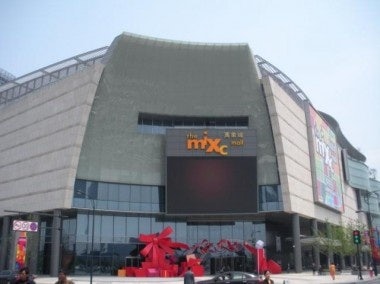Hangzhou Residents Go From "Fake Foreign" Brands To Top-of-the-Line In One Decade#

Hangzhou's largest shopping mall, MixC, opened last spring
Previously in Jing Daily's "Second-Tier Spotlight" series, we've looked at some of the major trends shaping China's provincial capitals, more commonly referred to as "second-tier" cities. While many observers of mainland China's consumer market focus on the country's "top-tier" cities (Beijing, Shanghai, Guangzhou, Shenzhen), the consensus of consumer analysts is generally that second- and third-tier cities will offer the most sustained growth, for luxury brands and mass market retailers alike, in the years ahead.
This week, we turn to Hangzhou, capital of southeastern Zhejiang Province and home to nearly 9 million people. While Hangzhou's natural beauty has made it a draw for China's elite for centuries (and its domestic tourists in more recent years), its proximity to Shanghai has made it something of a budding economic powerhouse. With the intermingling of these two key factors, over the past ten years Hangzhou has become an important and fast-developing luxury and consumer market, with the market heating up even more over the past five years. This week, the Chinese-language fashion portal Efu (中国服装网) traces the evolution of Hangzhou's red-hot luxury market, which became China's third-largest in 2009.
From Efu (translation by Jing Daily team):
When Hangzhou's first Hugo Boss store opened in 1999 on Guodalin Street, to those Hangzhou residents who were still proud to wear Montagut (梦特娇), the small store was their first exposure to suits that cost more than 10,000 yuan (US$1,540). For the first time, Hangzhou consumers could understand what a "luxury item" really was.
But it wasn't until the arrival of Louis Vuitton that everything really started to happen in Hangzhou. On November 19, 2004, Louis Vuitton opened a boutique at Hangzhou Tower [Shopping Mall], a key moment in the development of Hangzhou's high-end market. Within its first four hours of operation, LV's Hangzhou Tower boutique made more than 400,000 yuan (US$61,600).
Furthermore, LV's long-awaited entry into the Hangzhou market opened the premium floodgates, with Celine, Burberry and Ferragamo opening boutiques at Hangzhou Tower in rapid succession.
In 2005, Dolce & Gabbana opened its first boutique at Hubin International Boutique Compound (湖滨国际名品街), and in an unorthodox move chose a location in the center of the shopping area rather than one facing the street. Although many potential shoppers were still just learning about Dolce & Gabbana and the D&G name, the boutique's sales boomed, making it the top-grossing company in Hubin International's "famous brand" section. Soon after, Giorgio Armani debuted at Hubin International, followed by Hermès in 2006. In a span of only two short years, Hangzhou had welcomed the cream of the crop, in terms of international luxury brands.
By the end of 2009, Chanel opened its first Hangzhou boutique next door to Louis Vuitton at Hangzhou Tower, where it's achieved respectable sales figures.
2010 marked a watershed year for Hangzhou's luxury market. The city's first real shopping mall opened last year in the form of Hangzhou MixC, a nearly 2 million square meter commercial monolith. Coming after Hangzhou Tower and Hubin International, MixC has become a gathering place for luxury retail, starting off a three-way battle for Hangzhou's luxury market.
MixC has become an increasingly popular destination for luxury brands since opening last year, with many brands renting space even if they already have a Hangzhou boutique. Louis Vuitton, Cartier and Dior are among the brands that opened their second Hangzhou location at MixC.